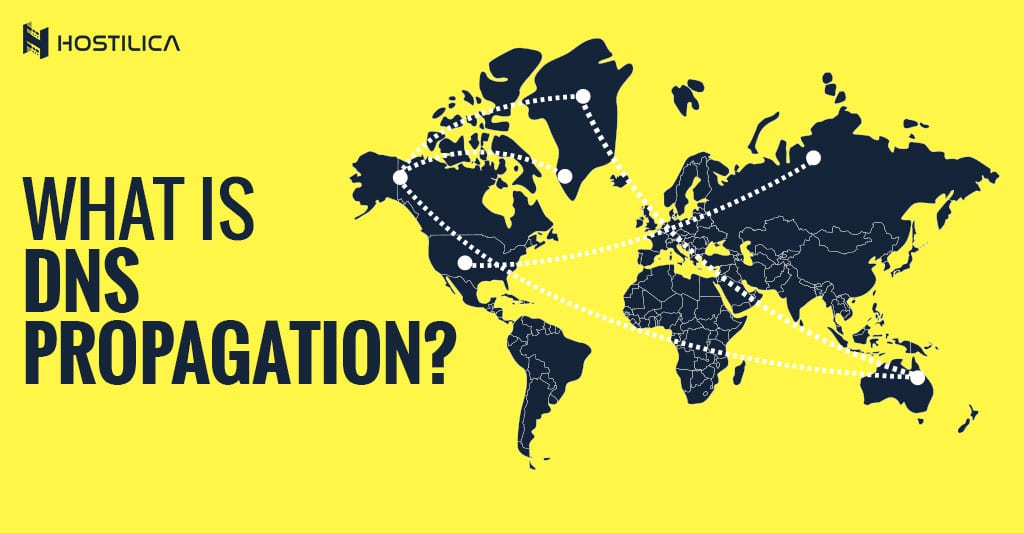Nowadays users’ expect to perform complex online transactions in a fraction of a second, but one of the obstacles to performance is the DNS System. Even the smallest change to the DNS system could take between a few hours and a few days to be propagated across the Internet.
When you change a DNS record, you can’t be sure when the change will happen. In this article, we’ll explain what DNS Propagation is and the causes of the propagation problem.
What is the DNS system?
The (Domain Name Server) DNS System is an infrastructure that enables translating a human-readable domain name such as “www.yourDomainName.com” into an IP Address such as “289.93.112.22”. The DNS system is a distributed system that relies on multiple layers of DNS servers.
When a web browser needs to know the IP for a host-name, it begins with a process called “DNS Lookup”, it asks a DNS server and might be referred to many other DNS servers until it reaches the name server that holds the IP address for the required host-name. At each stage in the DNS lookup process, systems might store DNS information in their local cache.
What is DNS Propagation?
When you change an IP address or any other information about a host-name in a DNS record, this change needs to propagate to all systems around the world which are involved in the DNS process.
If you made a change in a DNS record, then a client performs a DNS query and reaches a system that has not propagated yet, that client will receive the old information/address because that change hasn’t yet propagated to reach that user.
DNS propagation is the time a “DNS Change” takes to be updated in all DNS servers across the Internet. A change to a DNS record might be, for example, changing the IP address for a specific host-name – and this could take up to 72 hours to propagate worldwide, but it typically takes a few hours in many use cases.
Why DNS Propagation Takes So Long?
There are 2 main factors that case DNS propagation, which are:
- TTL (Time To Live) Settings:
Every DNS record has a TTL value, which is the time DNS servers should store that record in their cache, even if a DNS record is changed, DNS servers will continue working with its old value from the cache until this time has passed.
- ISP (Internet Service Provider):
Internet service providers (ISPs) around the world cache DNS records to make users access websites more quickly. For each website, they perform a DNS lookup once and then use the result for as many users as possible to access the website more quickly. Some ISPs ignore TTL settings and use DNS records in cache even if the TTL period has expired, and this can make the DNS propagation take longer.
How to Speed up DNS Propagation?
Most elements in the DNS system are not under your control, ISPs and DNS servers around the world have their own policies, but there are still simple ways to speed up DNS propagation which are:
- Define an A record that points your host-name to the new destination IP address.
- Set a minimal TTL for DNS records – recommended 5 minutes – because many ISPs might ignore the TTL when it’s below 5 minutes and retain the old record in their cache.
In most cases, these simple steps will speed up DNS propagation. However, there is no way to predict or know how long DNS propagation will take.
Is there a Solution For the Delay of DNS Propagation…?
Yes, there is the next generation of DNS technology. It’s a DNS platform that offers nearly instant-propagation. Any DNS change is propagated in just a few seconds worldwide.
This new technology uses a global network of fast DNS servers that could respond to DNS requests more quickly and allows users to set low TTL



